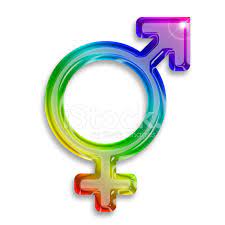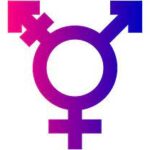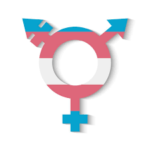Low estrogen levels can be a significant concern for many women, affecting various aspects of their health and well-being. Estrogen is a crucial hormone that influences not only reproductive health but also bone density, mood, and overall vitality. When estrogen levels drop, whether due to menopause, age, or other health issues, it can lead to a range of unpleasant symptoms. Luckily, there are several natural approaches to address low estrogen levels and restore balance. This article will delve into the intricacies of low estrogen, offering insights into symptoms, remedies, lifestyle changes, and more.
Understanding Low Estrogen: What You Need to Know
Low estrogen refers to a condition where the hormone levels in the body fall below the normal range. This can happen for various reasons, including natural aging processes like menopause, certain medical conditions, or even lifestyle factors such as extreme dieting or excessive exercise. Estrogen plays a vital role in regulating the menstrual cycle, maintaining bone health, and supporting mood stability, making it essential for women’s overall health. Anti Androgen Side Effects In Females
It’s important to recognize that estrogen levels can fluctuate throughout a woman’s life. For example, during the menstrual cycle, estrogen levels rise and fall, while post-menopause, levels significantly decline. Understanding the reasons behind low estrogen can help women navigate their health better and seek appropriate remedies or treatments.
Common Symptoms of Low Estrogen Levels in Women
Women experiencing low estrogen may encounter a variety of symptoms that can significantly impact their quality of life. Common symptoms include hot flashes, night sweats, mood swings, and vaginal dryness. These symptoms can be particularly bothersome, often disrupting daily activities and relationships. Additionally, low estrogen levels can lead to a decrease in libido and overall sexual function, further complicating emotional well-being.
Beyond the emotional and sexual symptoms, low estrogen can also affect physical health. Women may experience fatigue, difficulty concentrating, and even changes in skin elasticity. It’s crucial to pay attention to these signs, as they can indicate that hormone levels need to be addressed to maintain a healthy, balanced life.
Natural Remedies to Boost Estrogen Levels Safely
For those looking to manage low estrogen levels, several natural remedies may help boost hormone production safely. One well-known remedy is the incorporation of phytoestrogens into the diet. Phytoestrogens are plant-based compounds that mimic estrogen in the body, potentially helping to balance hormone levels. Common sources include flaxseeds, soy products, and legumes.
Another effective natural remedy is herbal supplementation. Herbs such as black cohosh, red clover, and dong quai have been traditionally used to support hormonal balance in women. However, it’s essential to consult with a healthcare provider before starting any new supplements to ensure they are safe and appropriate for your situation.
Foods That Help Increase Estrogen Production Naturally
Diet plays a significant role in hormone balance, including estrogen levels. Certain foods are known to help increase estrogen production naturally. Foods rich in phytoestrogens, such as soy products (tofu, tempeh, and edamame), whole grains, and nuts, can be beneficial. Incorporating these foods into your meals can help mimic estrogen’s effects in the body.
Additionally, healthy fats found in avocados, olive oil, and fatty fish can support hormone production and overall hormonal health. A balanced diet that includes a variety of fruits, vegetables, and lean proteins is vital in maintaining hormonal balance and supporting overall health.
Lifestyle Changes to Combat Low Estrogen Symptoms
Making specific lifestyle changes can also significantly impact estrogen levels and alleviate symptoms. Prioritizing stress management is crucial, as high stress can lead to hormonal imbalances. Techniques such as meditation, yoga, and deep breathing exercises can help reduce stress levels and promote hormonal health.
Getting enough quality sleep is another vital factor in maintaining balanced estrogen levels. Sleep deprivation can disrupt hormone production, including estrogen. Aim for 7-9 hours of quality sleep per night, and establish a relaxing bedtime routine to promote better sleep quality.
The Role of Exercise in Balancing Estrogen Levels
Exercise is an essential component of maintaining hormonal balance, including estrogen levels. Regular physical activity can help regulate body weight, improve mood, and decrease stress— all of which can positively influence hormone levels. Weight-bearing exercises, in particular, are beneficial for women, as they help promote bone health, which can be compromised by low estrogen levels.
However, it’s important to find a balance in your exercise routine. While moderate exercise is beneficial, excessive or intense workouts can lead to hormonal imbalances. Aim for a mix of aerobic exercises, strength training, and flexibility workouts to support overall health and hormonal balance.
When to Consult a Doctor About Low Estrogen Issues
While many natural remedies and lifestyle changes can help manage low estrogen levels, it’s essential to know when to seek professional help. If you experience severe symptoms such as extreme mood swings, persistent fatigue, or significant changes in your menstrual cycle, it’s a good idea to consult a healthcare provider. They can perform hormone level testing and recommend appropriate treatments based on your unique health profile.
Additionally, if you have underlying health conditions or are considering hormone replacement therapy (HRT), discussing these options with a doctor is crucial. They can provide tailored advice and ensure you make informed decisions regarding your health.
Myths and Facts About Low Estrogen and Women’s Health
There are various myths surrounding low estrogen levels and women’s health. One common misconception is that low estrogen only affects older women. In reality, women of all ages can experience low estrogen levels, leading to a range of symptoms. It’s essential to recognize that hormonal health is not limited to age but is influenced by multiple factors, including lifestyle, diet, and genetics.
Another myth is that estrogen replacement therapies are the only solution for low estrogen levels. While HRT can be effective for some women, there are many natural approaches to support hormonal balance. Understanding the facts about low estrogen can empower women to take charge of their health and make informed choices regarding their well-being.
Low estrogen levels can be a challenging issue, but with the right knowledge and proactive approach, it’s possible to manage symptoms and restore balance. By understanding the signs of low estrogen, incorporating natural remedies, maintaining a healthy diet, and making lifestyle changes, women can improve their overall health and well-being. If you’re experiencing troubling symptoms, remember that consulting a healthcare provider can help guide you toward effective solutions. Embrace the journey to hormonal health, and don’t hesitate to take action for your wellness!


